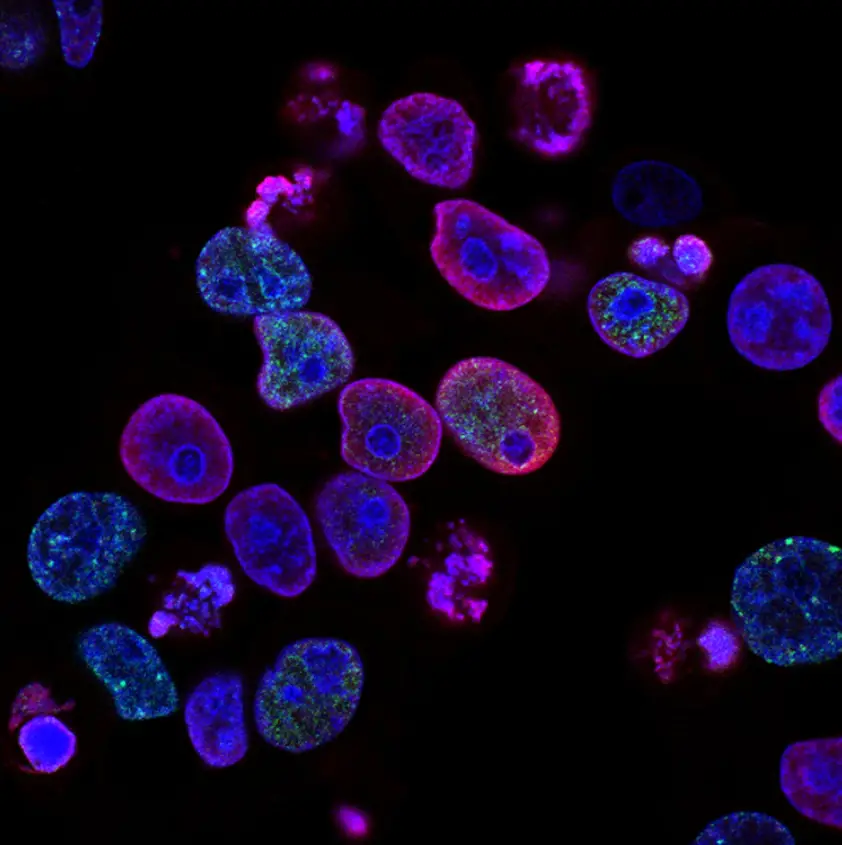In an era where the headlines echo with breakthroughs in genetic engineering and personalized medicine, understanding our inherited traits has never been more critical. That’s where Genetic Counseling Services, partnered with clinicians and other healthcare professionals, come into play. This blog post will dive deep into everything you need to know about these services, decoding your genes’ secrets, enabling informed healthcare choices, and giving you power over your own health destiny like never before. Harness your phone for quick access to valuable information as we take a journey into the intricate world of genetics.
Genetic counseling services, often covered by insurance, typically include comprehensive evaluation of an individual’s medical and family history, assessment of their risk for inherited conditions, discussion of available genetic testing options, interpretation of test results, and personalized guidance on the implications of the test results. Additionally, genetic counselors provide emotional support, education regarding inheritance patterns, and assistance in making informed decisions about reproductive choices or medical management plans. It is important to consult with a qualified genetic counselor or healthcare professional for personalized advice and guidance specific to your situation.
Defining Genetic Counseling Services
Genetic counseling services are a specialized branch of healthcare aimed at guiding individuals and families in understanding the significance and implications of genetic information. Partnering with clinicians and other healthcare professionals, genetic counselors offer comprehensive evaluations, education, support, and guidance to individuals considering or undergoing genetic testing.
Imagine you recently discovered that a family member, or perhaps your partner, has been diagnosed with a hereditary condition. You may be left feeling overwhelmed and concerned about your own risk. Genetic counseling services can provide you with the necessary information to better understand the inheritance pattern of the condition, assess your personal risk, discuss possible insurance coverage, and explore available preventive measures or treatment options.
Now that we have established what genetic counseling services are, let’s move on to exploring how these services empower patients through personalized guidance and support, even over phone consultations.
Patient Empowerment Through Genetic Counseling
Genetic counseling serves as a powerful tool for patient empowerment by providing individuals with valuable knowledge about their unique genetic makeup. This information enables patients to make informed decisions related to their health, family planning, and lifestyle choices with the partner, clinicians, and even their insurance providers in the loop.
During a genetic counseling session, patients can discuss their concerns with a trained professional who understands the potential implications of genetic information. Together, they dive into personal medical history, familial patterns, and relevant genetic test results to uncover any possible risks or predispositions, all this often at the reach of a phone call.
For instance, if you have a family history of breast cancer and are considering genetic testing for BRCA gene mutations, a genetic counselor can help interpret the test results and explain the associated risks. They will also provide guidance on potential prevention strategies such as increased surveillance or risk-reduction surgeries, and discuss insurance coverage for such services.
Moreover, genetic counseling encourages open communication within families by facilitating dialogues around inherited conditions. By understanding one’s own genetics, patients gain insights into potential risks for themselves and future generations. This knowledge allows for proactive decision-making, such as opting for preconception genetic testing or incorporating genetic information into family planning discussions with both partner and clinicians present.
By addressing both the emotional and informational components, genetic counseling provides individuals with a sense of control and empowerment over their health journey. By adopting an active practice in their healthcare journey, patients are not merely passive recipients of test results but active participants in their care. Beyond the realm of merely diagnosing, experts within the genetic counseling team ensure that every appointment is a step towards understanding and managing their unique genetic predispositions.
Now that we have explored the importance of patient empowerment through genetic counseling, let’s further delve into understanding how this process helps individuals better comprehend their unique genetic predispositions and potential risks. Through a well-structured approach by a team of experts, the difficulties of navigating genetic complexities become well-managed and inclusive.
Understanding Personal Genetic Predisposition
Understanding personal genetic predisposition is a key aspect of genetic counseling services. Our genetic makeup plays a significant role in determining our likelihood of developing certain conditions or diseases. Genetic counselors, in their expert practice, are trained professionals who can help individuals understand their unique genetic predispositions by analyzing their family medical history and conducting genetic tests. By identifying specific gene mutations or variations, individuals can gain valuable insights into their risk factors for various disorders. This team of experts assists individuals in making informed decisions about their health and take proactive steps to prevent or manage potential health issues.
For example, imagine someone with a strong family history of breast cancer. Through genetic counseling, they may discover that they carry a mutation in the BRCA1 or BRCA2 gene, which significantly increases their risk of developing breast and ovarian cancer. With their next appointment at the clinic, they can choose to undergo more frequent screenings, consider preventive measures like mastectomy or oophorectomy, or explore targeted therapies if diagnosed with cancer.
Experts in genetic counseling not only help individuals understand their genetic predisposition but also supports them emotionally as they navigate these complex and often challenging discoveries. Constituted by a team of professionals specializing in genetics and counseling, it provides a safe and non-judgmental space for individuals to ask questions, express concerns, and receive guidance.
Now that we have explored the importance of understanding personal genetic predisposition through genetic counseling services, let’s shift our focus to another vital aspect: facilitating informed medical decisions. With each appointment, the practice of sharing and discussing information continues, helping individuals make well-informed decisions.
Facilitating Informed Medical Decisions
Having an expert team perform genetic counseling services plays a crucial role in facilitating informed medical decisions. Once individuals are aware of their genetic predisposition for certain conditions, they can work closely with their healthcare providers to develop personalized medical plans based on this knowledge.
For those considering starting a family, reproductive genetic counseling can help prospective parents understand the likelihood of passing on specific genetic conditions to their children. With this data, experts can help them make decisions about family planning options, such as pursuing assisted reproductive technologies or prenatal testing to determine if their unborn child has inherited a genetic condition.
Consider a couple who discovers through genetic counseling that they both carry a mutation associated with cystic fibrosis. Armed with this knowledge, they can explore options like preimplantation genetic diagnosis (PGD) during in vitro fertilization (IVF) to select embryos without the mutation, significantly reducing the chances of passing on the condition to their children.
Genetic counseling services also extend beyond reproductive choices. They assist individuals in making informed decisions about preventive measures, lifestyle changes, and medical interventions. For example, if someone learns they have an increased risk for heart disease due to certain genetic factors, they can take proactive steps such as adopting a healthier diet, exercising regularly, and considering medications that may help mitigate their risks. The team and their practice, along with consistent appointments with the health experts, ensure a comprehensive approach towards managing genetic predispositions.
Overall, genetic counseling services, supported by trained specialists including geneticists, empower individuals to make decisions that align with their values and priorities while taking into account their unique genetic makeup. By scheduling regular sessions, these services provide them with the necessary information and support to navigate complex healthcare choices confidently, and can aid in areas like infertility concerns.
- According to a 2019 report by Genetic Counseling Workforce Working Group, there were an estimated 4,600 certified genetic counselors providing genetic counseling services in the United States.
- The “Journal of Genetic Counseling” published that between 10% and 20% of adults in western countries have utilized genetic counseling services for risk assessment related to hereditary diseases.
- The American Board of Genetic Counseling reported as of 2018, over 70 accredited programs exist across North America to train and certify individuals in the field of genetic counseling.
What Role Does Genetic Counseling Play in Hereditary Cancer Screening and Genetic Testing?
Genetic counseling plays a crucial role in hereditary cancer screening benefits by providing individuals with a comprehensive understanding of their genetic predisposition to cancer. This helps individuals make informed decisions regarding genetic testing and available preventative measures, ultimately leading to better health outcomes and proactive cancer management.
Exploring Genetic Disorders and Relevant Tests
Genetic disorders are conditions caused by changes or mutations in a person’s genes or chromosomes. These alterations can affect various aspects of human health, including physical traits, metabolism, susceptibility to certain diseases, and even infertility issues. Understanding genetic disorders and the relevant tests available, often interpreted by geneticists and other medical specialists, is crucial for effective diagnosis, treatment, and family planning.
Genetic testing plays a pivotal role in identifying genetic disorders. This process involves analyzing an individual’s DNA to detect any abnormalities or variations that may be indicative of a specific condition or potential risk. Different types of genetic tests exist, such as diagnostic tests, carrier screening tests, prenatal tests, and predictive genetic tests. Some individuals may undergo rigorous sessions of these tests to fully understand their condition and risks.
Diagnostic genetic tests are utilized when there is already a suspicion or clinical indication of a particular disorder. These tests, overseen by specialists, are performed to confirm a diagnosis and determine its specific characteristics. Infertility, a condition that may be influenced by genetic factors, may also sometimes be explored. On the other hand, carrier screening tests assess whether individuals carry gene mutations for certain genetic disorders, even if they do not exhibit symptoms themselves. This information is valuable for family planning.
Prenatal testing aims to identify potential genetic disorders or birth defects in a fetus during pregnancy. These sessions provide critical insights into the health of the baby and enable parents to make informed decisions regarding their pregnancy. Lastly, predictive genetic tests assess an individual’s risk for developing specific conditions later in life. This knowledge empowers individuals to take proactive steps towards preventive measures and early interventions when necessary.
Common Genetic Disorders and their Tests
Genetic disorders encompass a wide range of conditions with varying degrees of severity and impact on individuals’ lives. Some common examples of genetic disorders include cystic fibrosis, sickle cell anemia, Down syndrome, Huntington’s disease, and fragile X syndrome. In some cases, these disorders can result in infertility, making it a vital consideration for adults of reproductive age.
For instance, cystic fibrosis is a potentially life-threatening disorder characterized by respiratory issues and digestive problems. Carrier screening tests, thoroughly interpreted by geneticists and other specialists during sessions, can provide individuals with information about their chances of passing on this inherited condition to their children. These specialists can also provide assistance in cases where individuals are struggling with infertility, as certain genetic conditions can impact reproductive health.
Think of it as similar to how we use a road map to navigate through unknown territories. Genetic tests, guided by sessions with specialists, serve as a roadmap in our genetic landscape, guiding us to make informed choices and decisions about potential health issues, including infertility.
Genetic testing for these disorders typically involves analyzing specific genes or chromosomes associated with the condition. It helps healthcare professionals identify the presence of mutations or abnormal variations that may lead to the development of the disorder. The results of these tests can provide crucial insights into treatment options, management strategies, familial risks, and even concerns related to infertility.
By understanding common genetic disorders and the tests available to detect them, individuals and families can gain insight into their health risks and make informed decisions about their future. Genetic counseling services play a vital role in this process, providing guidance, support, and information to help individuals navigate the complex world of genetics. This includes sessions with geneticists, specialists trained to analyze genetic data and provide recommendations.
- Genetic disorders are a diverse group of conditions that range in severity and impact on individuals’ lives. Examples include cystic fibrosis, sickle cell anemia, Down syndrome, Huntington’s disease, and fragile X syndrome. Carrier screening tests can provide information about the likelihood of passing on these conditions to future generations.
Genetic testing plays a crucial role in identifying the presence of gene mutations or abnormal variations associated with these disorders. It offers valuable insights into treatment options, management strategies, and familial risks. Understanding common genetic disorders and available testing options empowers individuals and families to make informed decisions about their health.
Genetic counseling services are essential in assisting individuals as they navigate the complex field of genetics. These services provide guidance, support, and information to help individuals understand their health risks and make informed choices about their future. Genetic testing serves as a roadmap through the genetic landscape, enabling individuals to navigate unknown territories with greater clarity and confidence.
Role of Prenatal and Family History Testing
Prenatal and family history testing play a crucial role in the realm of genetic counseling services. These tests provide valuable information that aids in understanding an individual’s risk of inheriting certain genetic conditions. Regular sessions with genetic counseling specialists can further help unravel this complex information, providing insights about the potential for genetic disorders and infertility risks.
Prenatal testing, as the name suggests, is performed during pregnancy and aims to detect any genomics irregularities or potential risks to the developing fetus. It can be conducted through various methods such as ultrasound, blood tests, or more advanced techniques like preimplantation genetic testing (PGT) during in vitro fertilization (IVF). Prenatal testing helps expectant parents, particularly the mother, to make an informed plan for their pregnancy management and possible interventions if necessary.
For instance, imagine a couple with a family history of a specific genetic disorder. Through prenatal testing, they can determine if their baby carries the same gene mutation and make decisions regarding additional testing, treatment options, or even consider alternative reproductive choices.
On the other hand, family history testing focuses on assessing an individual’s risk based on their family’s medical background. Genetic counselors analyze the genomics of multiple generations of family members’ health records and identify patterns that may indicate inherited conditions. This information helps individuals understand their own vulnerabilities and enables them to make proactive decisions about their healthcare.
Imagine discovering that several relatives from previous generations have developed breast cancer at an early age. Family history testing would prompt further investigation into potential hereditary factors and appropriate recommendations for surveillance or preventive measures.
With prenatal and family history testing playing pivotal roles in identifying genetic risks, it is essential to choose the right genetic counseling service provider who will guide you through the process effectively.
Selecting Your Genetic Counseling Service Provider
Selecting a genetic counseling service provider is a significant decision that requires careful consideration. The qualifications, genomics expertise, and experience of the provider can greatly influence your overall experience and outcomes. Here are some key factors to consider:
- Certification and Credentials: Ensure that the provider is board-certified in genetic counseling and holds relevant credentials. This indicates their expertise and commitment to maintaining professional standards.
- Specialization: Different genetic counselors may have expertise in specific areas such as cancer genomics, prenatal testing, or pediatric genetics. Consider the specific needs and concerns you have and choose a provider who specializes in those areas.
- Experience: Look for providers who have experience working with individuals or families similar to yours. Their familiarity with specific conditions or genetic disorders can be invaluable in guiding you through the process.
- Communication and Support: The ability of the provider to communicate complex information clearly and supportively is crucial. Genetic counseling often involves sensitive topics, so finding a counselor who can provide emotional support alongside technical knowledge is essential.
- Access and Availability: Consider the convenience of location, availability for appointments, and any language preferences you may have. Accessibility plays an important role in ensuring a seamless experience throughout your genetic counseling journey.
By keeping these factors in mind, you will be better equipped to select a genetic counseling service provider who aligns with your genomics testing needs and provides the necessary guidance for your unique circumstances.
Throughout his career, Andras Kovacs has developed a deep understanding of DNA and its applications in genealogy and genetic testing. He has helped thousands of individuals uncover their ancestral heritage, using cutting-edge DNA analysis to trace family lineages and reveal connections across generations.







